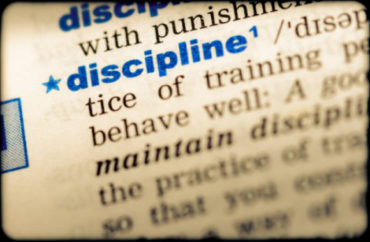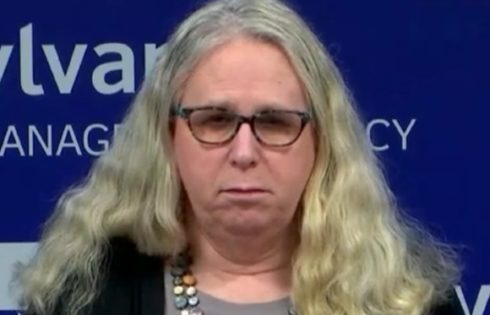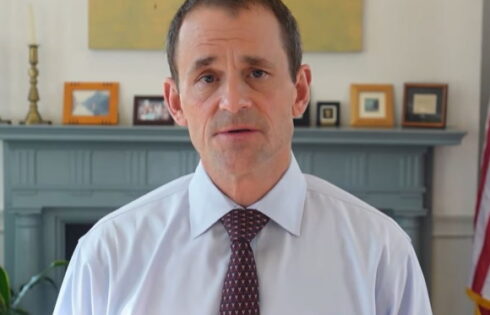
There was a lot of buzz this past week surrounding the Trump administration’s decision to scrap Obama-era guidelines regarding school discipline, and if you only got the news from the mainstream media you probably learned that the president doesn’t like minorities.
That’s par for the course with the media, natch. Oh well.
The 2014 Obama guidelines informed schools they could be in violation of federal civil rights laws if they enforced discriminatory discipline rules; however, the kicker is that schools could still be culpable even if there were no discriminatory intent with their policies — that ‘ol “disparate impact.”
In other words, if a school’s numbers were “wrong” racially, the school could (and most likely would) be found in violation.
Now imagine you’re a school teacher. Or a principal. Or a central office administrator. What would your reaction be to such dictates? Most would do this: In an effort to make your numbers “look good,” misbehavior starts getting … well, ignored in classes and schools in general so as not to run afoul of the feds. And what ends up being the result?
Chaos. And teachers fleeing the profession.
To be sure, the Obama guidelines didn’t actually do away with discipline, they merely called for “alternatives” — things with fancy monikers like “restorative justice” and “talking circles.” Punitive measures such as detentions and suspensions became anathema, and to make matters worse, states like Delaware enacted legislation codifying the Obama protocols.
Take the following from the Delaware Senate Bill 85 synopsis:
According to data provided by the Delaware Department of Education (“DOE”), thousands of Delaware students receive out-of-school suspensions each year for minor infractions, such as being unprepared or late for class, dress code violations, and disrespectful behavior. In 2013, only 2% of out-of-school suspensions were for serious offenses such as weapons, drugs, or serious violence. Out-of-school suspensions do not address the root causes for the misbehavior, and only serve to put the students further behind in class.
Let’s be honest, here: Students weren’t getting suspended for latenesses and dress code violations unless they became very chronic issues. But even “less punitive” punishments like detentions for these infractions have been nixed, according to educators with whom I’ve spoken.
In addition, “disrespectful behavior” is misleading. Screaming and cursing out a teacher in front of the whole class would fall under this category, but suspension is off the table as a consequence (even if the behavior is repeated) because teachers and officials fear the hand of the feds (and state).
Need it be brought up that similar policies allowed the highly disturbed Nikolas Cruz of Parkland, Florida’s Marjory Stoneman Douglas High School to continually slip through the cracks … until he ended up shooting up his school?
Thus the Trump administration’s move.
According to a Trump White House staffer, “One of the things that the [recent] commission was concerned with what was the recurring narrative that teachers in the classroom or students in the hallways and on campus were afraid because individuals who had a history of anti-social, or in some instances, aggressive, trending toward violent behavior, were left unpunished or were left unchecked.”
Indeed, as Roger Clegg writes,
[…] there is overwhelming evidence that the Obama-era policies culminating in the guidance have pushed schools not to discipline students who ought to be disciplined, simply to avoid politically incorrect numbers. Ironically but predictably, the victims are likely to be well-behaved poor and minority students, along with their teachers, since it is their classrooms that become disrupted and dangerous. …
Defenders of the guidance claim that it is needed to stop racial discrimination in the application of school discipline, but this is simply not true: Any true discrimination can be addressed without using the disparate-impact approach, which actually results in more racial discrimination and not less. In all events, as discussed, the guidance violates the law in a number of ways, and has enormous policy costs that overwhelm any dubious policy benefits.
A sizable segment of the First State’s cadre of teachers was hired in 1991 after the state had offered an early retirement package. Those hires will have completed 28 years of service at the end of this school year, but many of them are looking to get out now — willing to take a reduced pension rather than continue in classrooms and schools where students essentially run the show now.
MORE: Philly teachers fed up with knuckleheaded discipline policies
MORE: DOE needs to scrap Obama-era school discipline guidelines
IMAGE: Shutterstock.com
Like The College Fix on Facebook / Follow us on Twitter







Please join the conversation about our stories on Facebook, Twitter, Instagram, Reddit, MeWe, Rumble, Gab, Minds and Gettr.